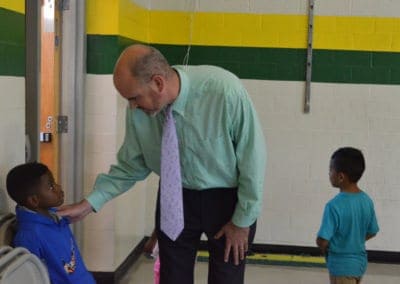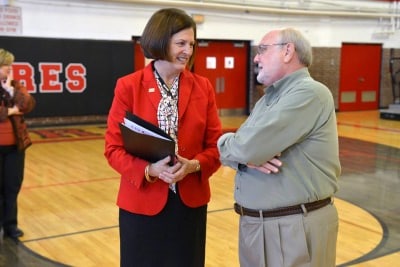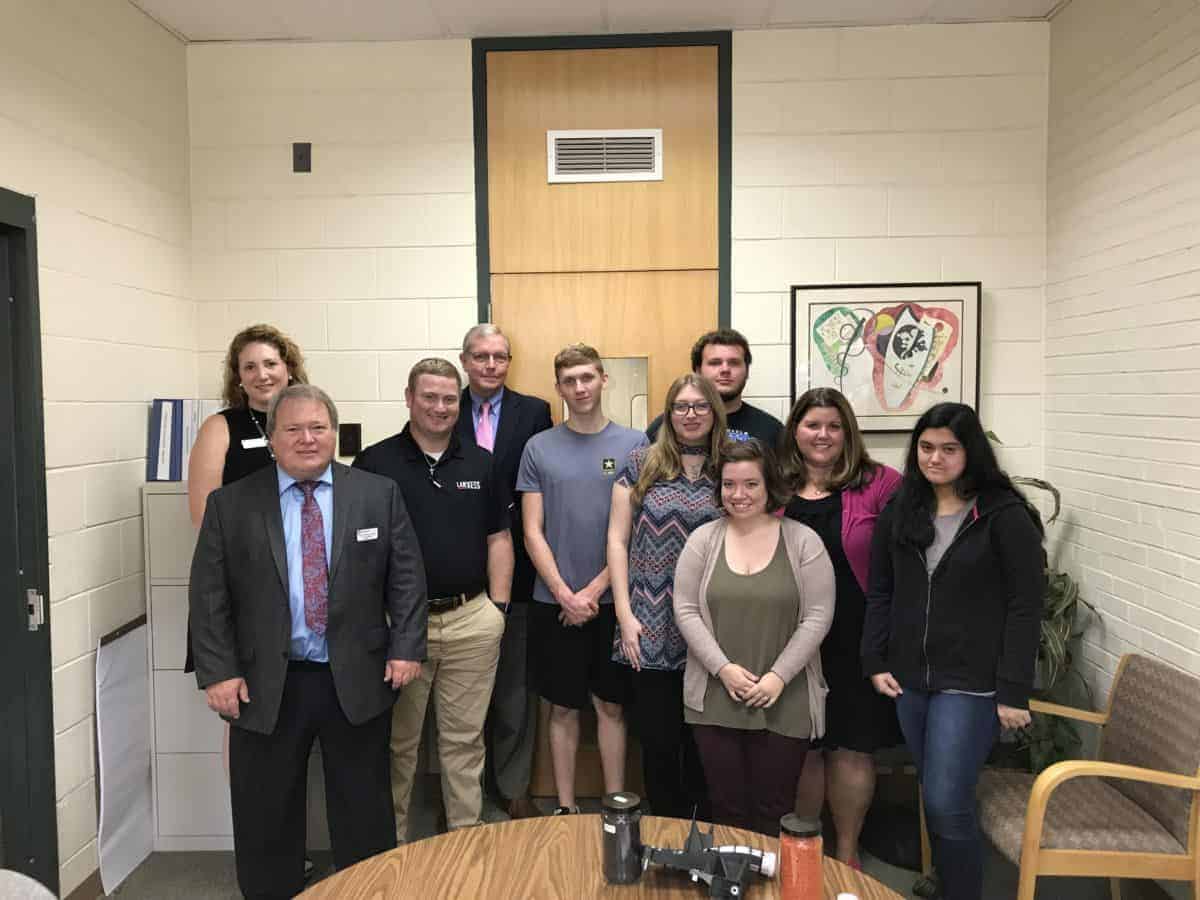Nearly a decade ago, a group of Gaston College faculty members came together to take a hard look at their academic programming.
“We realized that the way we were doing things, the traditional way of doing things, it was OK, but it wasn’t great,” says Ashley Hagler, the college’s director of undergraduate research and a biology professor. “It wasn’t working for our students.”
The educators dove into academic literature.
“I can’t even tell you how many papers we read,” Hagler says. “There were stacks in my office as tall as me.” All of the research pointed toward coursework that is active, engaging, and research-driven. “Students need to be involved in their own learning and take responsibility for their own learning,” Hagler says.
The group came up with a new approach, which is today called SPARC4: STEM Persistence and Retention via Cohorting, Centralization, Curriculum Change and Collaboration. The initiative led to more practical academic work designed to be applicable to the real world and—importantly—to help Gaston College graduates successfully transfer into four-year degree programs as true juniors.
“Students are hands on. They’re boots on the ground,” Hagler says. “If you’re going to be a scientist, you need to be practicing science, not just sitting there learning from a board or an overhead or a PowerPoint.”
That attitude is indicative of Gaston College’s approach to workforce development, which is rooted in student success.
“It changed every aspect of my life,” says Janna Sherman, who graduated from the SPARC4 program and went on to earn a bachelor’s degree from UNC Charlotte. “It helped me learn that I was responsible for my own education and I need to take that on.” Additionally, scholarship funds through the SPARC4 program helped Sherman pay for her education.
Those scholarships help Matthew Moore, a current Gaston College engineering student in the SPARC4 program, with his goal of paying for his college education with as little debt as possible. “It’s been incredibly helpful,” he says. “And that’s how everyone is here. There hasn’t been a question I’ve asked that they haven’t been able to help me with.”
Gaston College enrolls about 8,000 students per term in degree programs, many of which will stay in Gaston and Lincoln counties after graduation.
“We are definitely growing our workforce within our own community,” says Chief Development Officer Julia Allen. “If there is a student success initiative out there, I’m pretty sure it has happened on this campus. And it’s not just because we want to say we do it, just to get credit for it and check the box.”
Economic development is a critical driver for the college’s faculty, staff, and administration. It led to the creation of SPARC4, but it also fostered a well-regarded apprenticeship program known as Apprenticeship 321.
“The apprenticeship program was designed specifically in response to employer needs in various occupations,” says Dennis McElhoe, Gaston College’s vice president for economic and workforce development. “It’s designed to help fill that talent pipeline that employers told us is deficient.”
More than a dozen employers participate in the program, which is one of only a few community college-sponsored apprenticeship programs registered with the U.S. Department of Labor. “Those employers are the drivers for the kind of training and classes that we offer,” McElhoe says.
About 30 apprentices are enrolled in the program this year, include Jamie McGinnis, a Gaston College student who works as an apprentice for LANXESS, a German-based specialty chemical manufacturer.
“All of the technology in my classes is actually what we’re using in the field,” he says. “If I come in and work on a valve, it’s the same valve I work on at the plant I work at.”
Gaston College’s approach, rooted in that student success philosophy, has been valuable for McGinnis, who hopes to finish his degree and then enroll in an East Carolina University program—paid for by LANXESS. “A lot of the apprentices, this is our first time in actual real world experiences with the industry, not the part-time job at the grocery store or the gas station.” And yet he’s on track to graduate debt free with a secure career path ahead of him.
Like the individual success stories, the college’s aggregate results are impressive.
The SPARC4 approach delivered appreciable gains in student achievement. Pass rates climbed by 20 percent. General population retention rates grew by 23 percent. Enrollment numbers and graduation rates increased.
Students excelled at Gaston College, and Hagler says that was great news. But what happens after they left the Dallas campus is even more exciting: They transfer into four-year programs. They earn degrees. They return to Gaston County and contribute to the local economy. They find success.
“We are focused on student success, but not just here,” she says. “We’re focused on student success state-wide and nation-wide. All the students who come through our doors, we want them to achieve their goals.”
Recommended reading




